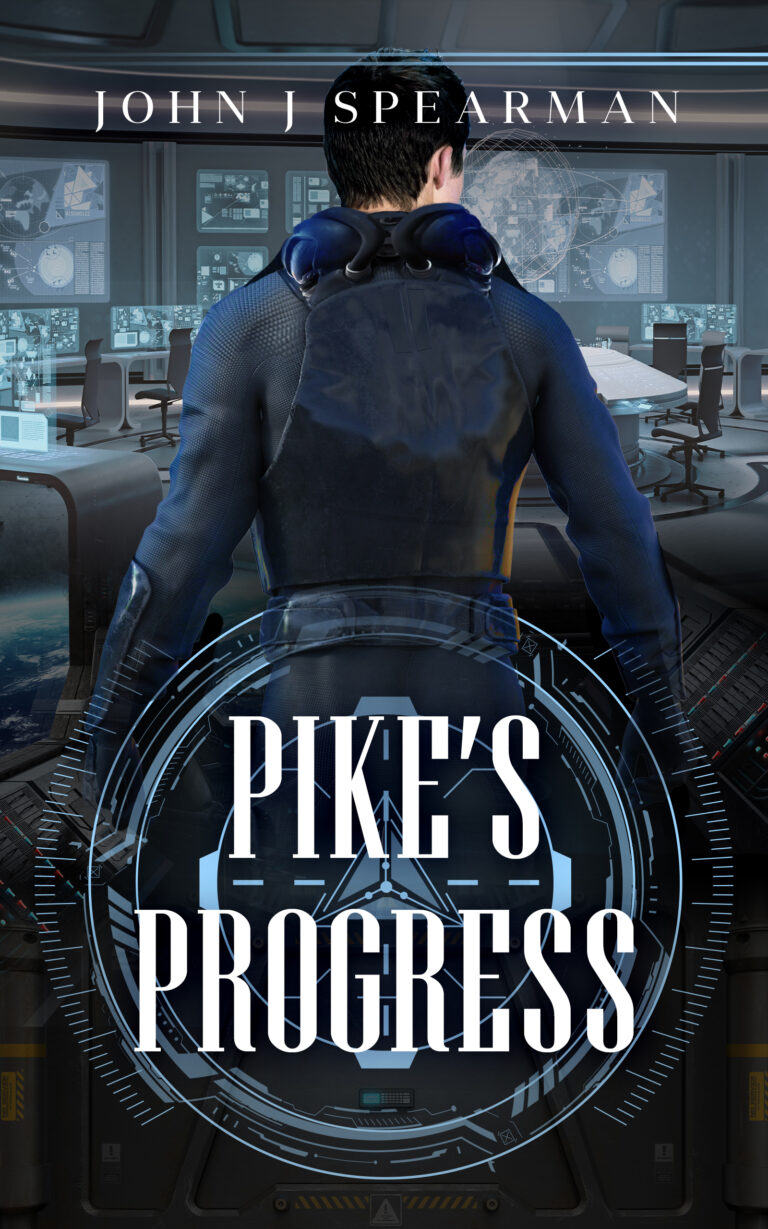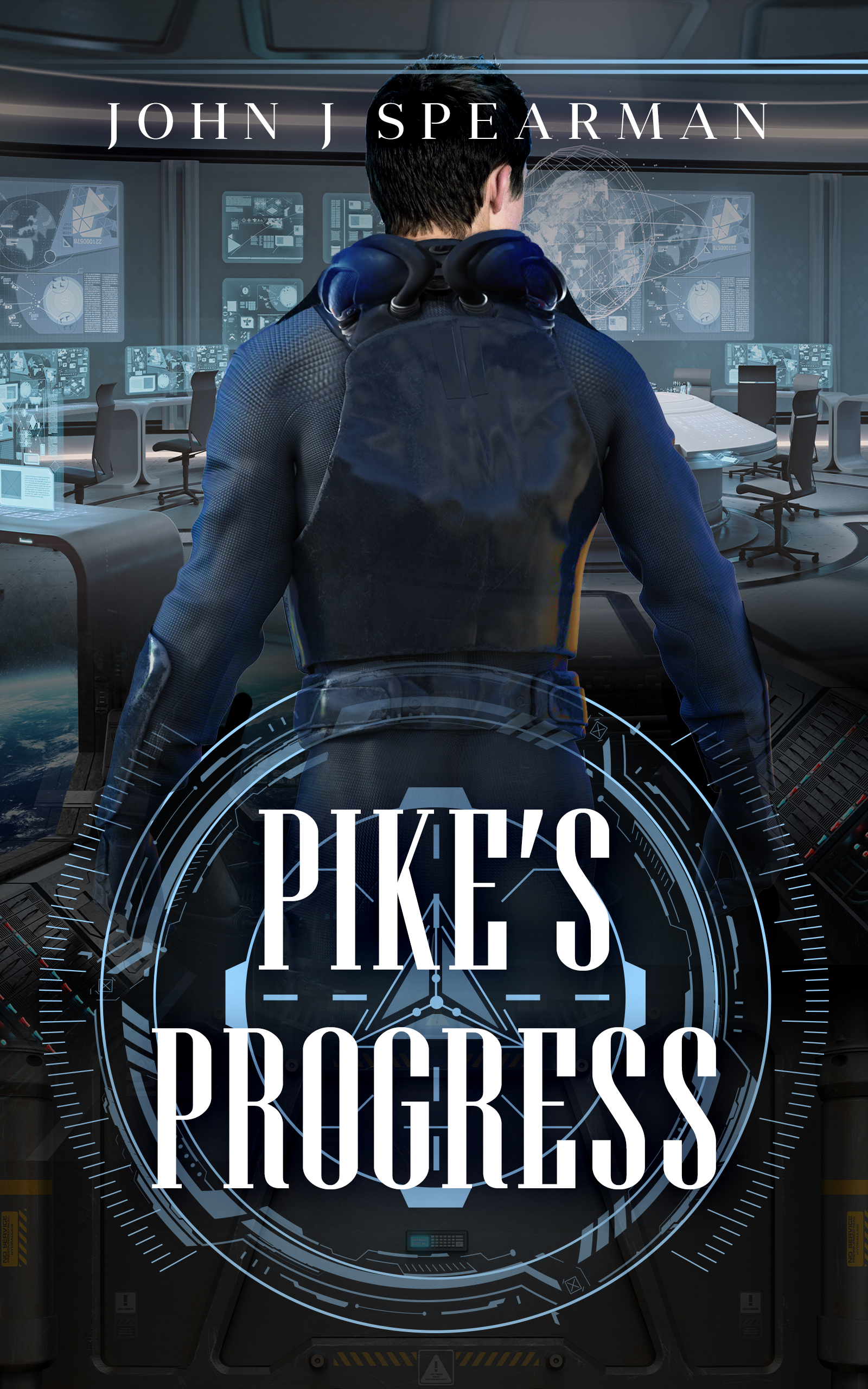The third in Spearman’s Pike series, PIKE’S PROGRESS opens on Sandy Pike having recently returned to naval service. Pike retired from the Planetary Alliance shortly before it lost its last war against the Hegemony of United Worlds, but after civilian life involved a close shave with organized crime, Pike is shipboard once more. Now the navy he knew is re-organizing under the pressures of a strained peace, and he and his loved ones still have unfinished business with the criminal syndicates that they escaped.
PIKE’S PROGRESS is clear about its intentions. The text opens with Pike walking his new ship, lovingly described meter-for-meter, gun-for-gun, and nearly room-for-room; this book is less about characters than it is about ships. These ships are described from myriad viewpoints – from the halls of state where high-level strategic decisions are made to the command centers of individual vessels – but the essential action is between two superpowers, both leery of escalation, attempting to pursue their policy goals. Although it boasts armfuls of characters, the text is largely uninterested in them as people; some have particular histories or attributes, but the story is about a military engagement. Characters pass through this engagement, in space and time. An entire B plot involves mafia types, events from the previous novels, a trauma-and-rebirth arc, but this plot is surprisingly straightforward and without meaningful stakes. Even when Captain Pike’s life is on the line, there’s little real tension compared to the lengthy concerns about whether a particular battlegroup will arrive in time to make a difference in a fight.
But this is fine – PIKE’S PROGRESS states its focus plainly and follows through. The prose is uncluttered and clear, suitable to the military mindset which shapes its story and characters. The characters themselves exist more as clusters than individuals: a “political” cell of civilian decision-makers; the “military” cell of Pike and his officers; the “underworld” cell of former-naval intelligence officer Ali and her contacts in organized crime. Few of the characters stand out, but together they evoke types. In this regard, the portrait of shipboard officers is most effective, calling to mind the career-long layers of camaraderie seen in military fiction like o’Brian’s Aubrey-Maturin series. The best moments are the simplest: constraints on ships, time, and resources; clever solutions to problems; and the responsive nature of decision-making.
That said, PIKE’S PROGRESS struggles to maintain its focus. While building on material from the previous novels, the text fails to meaningfully integrate its plotlines; the political and military scenes fit hand-in-glove, but the espionage plotline meanders away at times. Meanwhile, an entire episode near the end of the novel seems entirely unnecessary, introducing a political actor with no foreshadowing and resolving without any apparent consequences.
Nonetheless, when PIKE’S PROGRESS keeps its head level and guns aimed true, it’s an entertaining ride for fans of hard sci-fi, military fiction, or political thrillers alike.
~Dan Accardi for IndieReader


